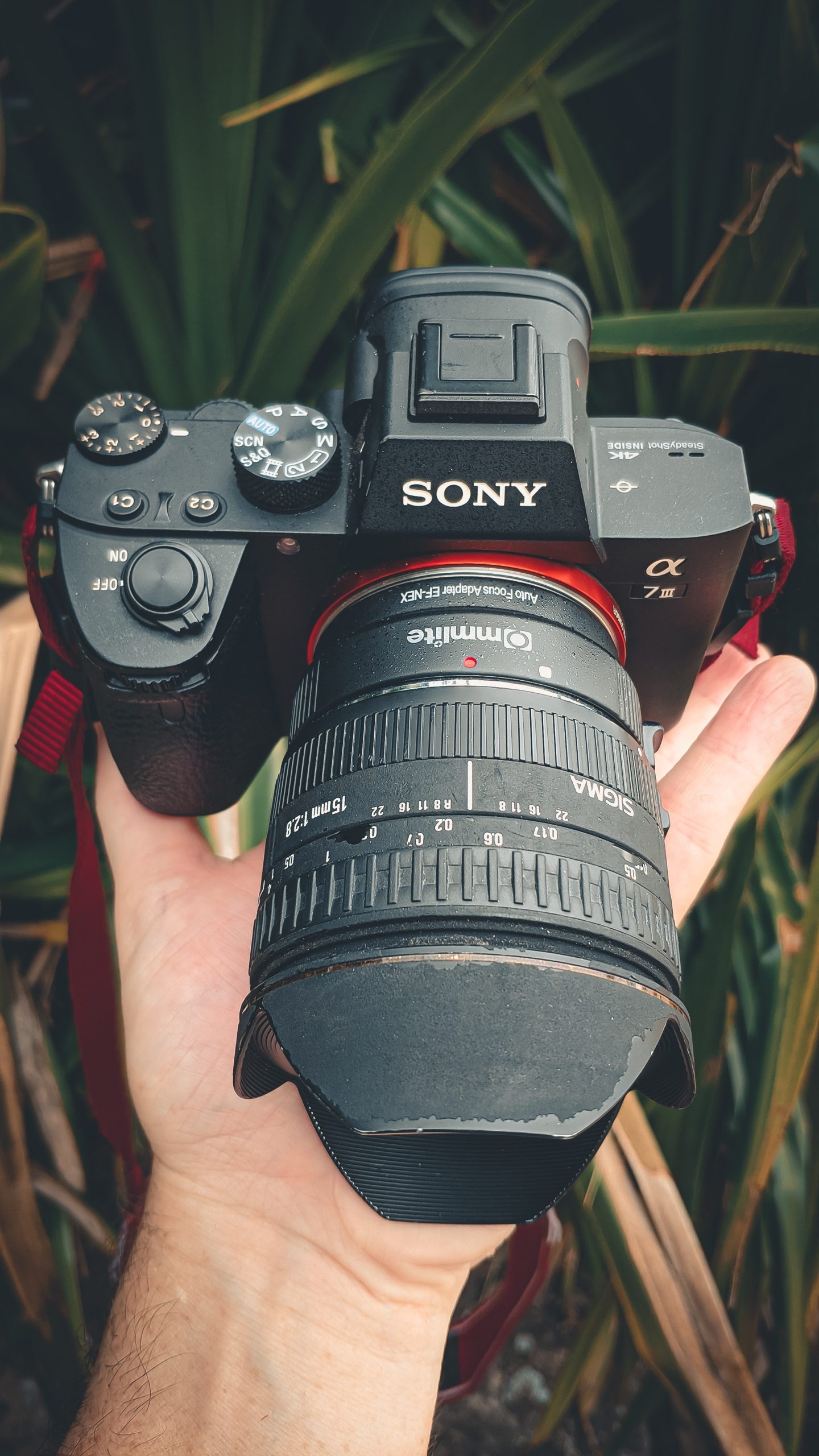The history of digital photography began in the 1950s.
In 1951, the first digital signals were saved to magnetic tape. Six years later, in 1957, the first digital image was produced through a computer.
By Russell Kirsch, an image of his son, Walden. en.wikipedia.org

The development of photography, humans recorded the world through drawing, painting, and sculpture. The appearance of photography basically changed how people visually document events.
The earliest known photograph was taken in 1826 by the Frenchman Joseph Nicephore Niepce In 1888.study.com
Digital photography a section of applications with a long history. The technology originated in the space. It involves highly customized, embedded system merge with sophisticated remote telemetry.
Digital photography is dominated by the semiconductor industry, which evolved later.
An early semiconductor milestone was the advent of the charge-coupled device image sensor, first demonstrated in April 1970; since then, the field has advanced rapidly, with concurrent advances in photolithographic fabrication. https://en.wikipedia.org/wiki/Digital_photography
INTRODUCTION TO DIGITAL PHOTOGRAPHER.
Digital photographer has special ability to connect with their subjects, putting them at ease and capturing their true essence.
Whether photographing an individual, an event, or a sweeping panorama, they have an innate talent for capturing the beauty, emotion, and significance of each moment.
Their dedication to delivering exceptional results, exceeding client expectations, and maintaining clear communication throughout the creative process sets them apart.
Digital photographer constantly evolving in the dynamic realm, committed to pushing boundaries, experimenting with new techniques, and staying at the forefront of industry trends.
Here are some listed details about about digital photographer, the activities of a digitalphotographer,some examples of a digital photographer, advantages and disadvantages of a digital photographer and the effective ways digital photographer can work.
Beneath are further facts about digital photographer.
WHAT IS DIGITAL PHOTOGRAPHER
Digital photography is the process of using electronic and computing appliances to capture, create, edit and share digital images/photographs.
It encompasses several different technologies to provide electronic or computer-based photography services.
It is mainly used as a means to create, publish or use digital photographs on computers and/or the Internet.
- Some electronic and computing technologies that are part of digital technology are: Electronic/digital cameras: These capture images/photographs and store them in built-in/integrated storage media cards.
- Computing devices: Examples include a webcam integrated with a computer/laptop or a scanner that enables the capturing of existing physical (paper/card) images.
- Digital photography software: Purpose-built software enables the modification of texture, color, brightness and many other image attributes. techopedia.com
DIGITAL PHOTOGRAPHER THE ACTIVITIES
Post-Processing
Digital photographers after capturing the image, often edit them using specialized software such as Adobe Photoshop or Lightroom.
They adjust features like brightness, contrast, saturation, and sharpness to enhance the overall quality of the image. They may also perform more advanced edits, such as removing unwanted objects, retouching skin.
Composition and Framing
Digital photographers focus on composing visually appealing images by considering elements such as leading lines, symmetry, and balance.
They select appropriate angles, perspectives, and focal lengths to convey the desired message.
Lighting Techniques
Digital photographers work with natural or artificial lighting to create the desired mood or effect. They may use diffusers, reflectors, or artificial light sources to control and manipulate lighting conditions.
Specialized Genres
Digital photographers often specialize in specific genres such as landscape, portrait, fashion, wildlife, architectural, or documentary photography.
Each genre requires unique skills and techniques to capture and convey the essence of the subject matter effectively.
Equipment and Gear
Digital photographers are knowledgeable about cameras, lenses, tripods, filters, and other accessories. They choose equipment based on the specific requirements of their projects and the desired outcomes.
Image Management
Digital photographers organize and manage their image files using software applications like Adobe Lightroom. They categorize, tag, and store images for easy retrieval and future reference.
Client Collaboration
Digital photographers work with clients, such as individuals, businesses, or publications, to fulfill specific project requirements.
They communicate with clients to understand their needs, provide creative input, and deliver images that meet or exceed expectations.
Marketing and Promotion
Digital photographers promote their work through various channels, including websites, social media, and exhibitions.
They develop an online presence, showcase their portfolio, and engage with their audience to attract potential clients or opportunities.
Continuous Learning
Digital photographers strive to stay updated with the latest advancements in equipment, software, and industry trends.
They attend workshops, courses, and conferences, and engage in self-directed learning to refine their skills and expand their creative horizons.
It’s important to note that the specific tasks and responsibilities of a digital photographer can vary depending on their specialization, experience level, and the nature of their work.
DIGITAL PHOTOGRAPHER SOME EXAMPLES
Annie Leibovitz
Annie Leibovitz has photographed numerous famous figures and created some of the most recognizable images in contemporary photography. She is known for her iconic celebrity portraits
Steve McCurry
Steve McCurry captured the iconic image “Afghan Girl” that became a symbol of conflict and resilience. His powerful portraits and documentary images have been widely exhibited and published. He is known for photojournalism
Jimmy Chin
Jimmy Chin specializes in adventure and outdoor photography. He has documented extreme expeditions and outdoor activities, including capturing breathtaking images of mountaineering and rock climbing.
Brooke Shaden
Brooke Shaden is known for her fine art conceptual photography. Her surreal and ethereal images often convey emotional and introspective narratives, inviting viewers into her imaginative worlds.
Platon: Platon
He is known for his portrait photography, which has appeared in publications such as Time, Vanity Fair, and The New Yorker.
His striking black-and-white portraits of influential figures, including world leaders, celebrities, and human rights activists, have garnered international acclaim.
Joey L
Joey L is a commercial and portrait photographer known for his dramatic and cinematic style. He has photographed musicians, actors, and cultural figures, and his work has been featured in magazines and advertising campaigns.
Elena Shumilova
Elena Shumilova gained popularity for her enchanting and atmospheric photographs of children and animals in rural settings. Her dreamlike images evoke a sense of wonder and nostalgia.
These are just a few examples of digital photographers who have made significant contributions to the field.
There are countless talented photographers across different genres and styles, each with their unique vision and approach to capturing and creating images.
DIGITAL PHOTOGRAPHER THE DISADVANTAGES
Digital Photographer Initial Cost of Equipment:
High-quality digital cameras and lenses can be expensive, especially for professional-grade equipment. Upgrading to the latest camera models or investing in specialized lenses and accessories can incur significant costs.
This initial investment can be a barrier for entry for some photographers.
Digital Photographer Dependence on Technology:
Digital photography relies steadily on technology, including cameras, memory cards, computers, and editing software.
Technical glitches, equipment malfunctions, or software issues can muddle workflow and possibly lead to data loss or image corruption. Digital photographers need to stay updated with technology and have backup solutions in place to mitigate such risks.
Digital Photographer Learning Curve and Skill Requirements:
Amid digital cameras offer convenience and immediate feedback, mastering the technical aspects of digital photography and post-processing techniques can be challenging.
Photographers need to invest time and effort in understanding camera settings, image editing software, and keeping up with advancements in the field.
Also, the ease of digital photography can sometimes result in an oversaturation of images, making it more challenging to stand out and create unique work.
Digital Photographer Storage and Backup Considerations:
Digital images can quickly accumulate in large quantities, requiring ample storage space.
Photographers must manage and organize their image files efficiently, implement backup systems to protect against data loss, and potentially invest in external hard drives or cloud storage solutions.
This requires additional effort and may add to the overall costs.
Digital Photographer Image Quality Limitations:
While digital cameras have made significant advancements in image quality, some photographers and purists argue that film photography still offers a distinct and unique aesthetic.
Film photography often exhibits characteristics such as grain, tonal range, and color reproduction that some photographers prefer and may find challenging to replicate in digital formats.
Digital Photographer Constant Technological Advancements:
The digital photography industry is rapidly evolving, with new camera models, lenses, and software being released regularly.
Keeping up with the latest technology and determining which upgrades are necessary can be overwhelming and potentially costly for photographers, particularly those who are not early adopters.
Digital Photographer Security and Copyright Concerns:
Digital images can be easily duplicated, manipulated, or stolen due to their digital nature.
Protecting the copyright of images and ensuring that they are not misused or distributed without permission requires photographers to be vigilant and implement appropriate measures to safeguard their work.
DIGITAL PHOTOGRAPHER THE ADVANTAGES
Digital Photographer Instant Image Preview:
With digital cameras, photographers can instantly preview their images on the camera’s LCD screen. This allows them to review composition, exposure, and other factors immediately after capturing an image. They can make adjustments on the spot and reshoot if necessary, saving time and ensuring better results.
Digital Photographer Cost Savings:
Digital photography erase the need for film and processing expenses, which can be a significant cost for film photographers. Once a digital camera is purchased, photographers can take numerous photos without worrying about the cost of film or development.
This cost efficiency is particularly beneficial for photographers who frequently shoot large volumes of images.
Digital Photographer Immediate Feedback and Learning:
Digital cameras provide instant feedback, allowing photographers to learn and improve their skills more rapidly. They can analyze histograms, check focus, and review exposure settings immediately after capturing an image. This immediate feedback make adjustments on the spot.
Digital Photographer Flexible Image storage organization Settings:
Digital cameras offer a wide range of ISO settings, allowing photographers to adjust the camera’s sensitivity to light.
This flexibility is particularly useful in low-light situations where higher ISO settings can be used to capture images with less noise.
Digital Photographer Image Editing and Post-Processing:
Digital photography allows photographers to edit and enhance their images using software tools like Lights.
They can adjust colors, exposure, contrast, and other elements to achieve the desired final result. This post-processing flexibility enables photographers to have greater control over their creative vision.
Digital Photographer Image Storage and Organization:
Digital files are easy to store, organize, and retrieve. Photographers can create digital archives, apply metadata tags, and use software tools for efficient file management.
This makes it simpler to locate specific images when needed and provides a backup solution for preserving valuable photographs.
Digital Photographer Faster Turnaround Time:
Digital photography enables photographers to deliver images to clients more quickly.
This faster turnaround time can be a competitive advantage for photographers working in time-sensitive industries such as events or news photography.
DIGITAL PHOTOGRAPHER EFFECTIVENESS
Digital Photographer Planning and Preparation:
This includes researching the subject or location, understanding the client’s needs and objectives, creating a shot list or storyboard, and ensuring all necessary equipment is in order.
By investing time in preparation, photographers can maximize their efficiency and increase the chances of capturing outstanding images.
Digital Photographer Technical Proficiency:
Digital photographers should have a strong grasp of technical aspects such as camera settings, exposure, composition, and lighting.
Mastering these fundamentals enables photographers to have better control over their equipment and produce high-quality images.
Continual learning and practice in technical skills help photographers operate their gear with ease and confidence.
Digital Photographer Creative Vision:
It involves honing one’s artistic style, finding inspiration, and seeking out new perspectives. By cultivating a distinct aesthetic and pushing the boundaries of creativity, photographers can create compelling images that stand out and resonate with viewers.
Digital Photographer Effective Communication:
This involves actively listening to their needs, asking relevant questions, and providing guidance when necessary.
Clear communication ensures that everyone involved understands the desired outcome and helps build positive working relationships.
Digital Photographer Post-Processing Expertise:
Digital photographers should possess proficient post-processing skills using software like Adobe Photoshop or Lights.
They should have a good understanding of image editing techniques, color correction, retouching, and creative enhancements. Skillful post-processing enhances the visual impact of images and allows photographers to bring their creative vision to life.
Digital Photographer Marketing and Networking:
A digital photographer must proactively market their work and build a strong network of contacts in the industry.
This can involve creating an engaging website or online portfolio, actively participating in social media platforms, attending industry events, and collaborating with other professionals.
Effective marketing and networking help photographers gain exposure, attract potential clients, and create valuable opportunities for their career growth.
SUMMARY
The history of digital photography began in the 1950s. Russell Kirsch, used his son image, Walden.
A digital photographer is a skilled professional who captures, edits, and manipulates images using digital cameras and software. They combine technical knowledge with artistic vision to create visually appealing photographs in various genres and styles.
Digital photographers benefit from advantages such as immediate preview and feedback, cost efficiency, flexibility in editing, high ISO performance, and easy sharing and distribution of images. They engage in activities such as planning and pre-production, shooting and capturing images, post-processing and editing, image management and organization, portfolio development and promotion, client collaboration and communication, and continuous learning and skill development.
A digital photographer possesses a keen eye for composition, lighting, and framing, and they use their expertise to create captivating and meaningful visual stories. They work with clients to understand their vision and objectives, delivering images that evoke emotions and convey a desired message.
With the advancements in digital technology, a digital photographer has the ability to manipulate and enhance images, offering creative possibilities and endless artistic expression. They stay up-to-date with the latest trends and techniques, continuously learning and refining their skills to push the boundaries of digital photography.
Digital photographer the effective ways can enhance their productivity, creativity, and success in the field. Continuous improvement, adaptability, and a commitment to delivering high-quality work are key elements for achieving long-term success as a digital photographer.
In general, a digital photographer is a talented and dedicated professional who harnesses the power of digital technology to capture and create stunning images that inspire, captivate, and leave a lasting impression on viewers.




